Council members are appointed by the Minister of Health.
Half of the 10 members are or have been engaged in health research, while the balance bring skills and experience in areas such as community affairs, health administration, law, management, and knowledge of health issues from a consumer perspective.
The Council's governance responsibilities include:
- Communicating with the Minister of Health and Minister of Research, Science and Innovation, and other stakeholders to ensure their views are reflected in the HRC's planning.
- Delegating responsibility for achievement of specific objectives to the chief executive.
- Monitoring organisational performance towards achieving objectives.
- Accountability to the Ministers for plans and progress.
- Maintaining effective systems of control.
The Council maintains an interests register and ensures Council members are aware of their obligations to declare interests. The Council is committed to ensuring that all of its activities are conducted in a manner which meets the highest ethical standards.
The criteria for membership of the Council is outlined in Sections 8 to 11 of the Health Research Council Act 1990 and as amended by the Health Research Council Amendment Act 1991. Sections 6, 31 and 34 of the Act sets out the statutory responsibilities of the HRC, which relate to the functions of the Council, consideration of applications, and liaisons with other organisations.
Professor Lester Levy, CNZM - Chair
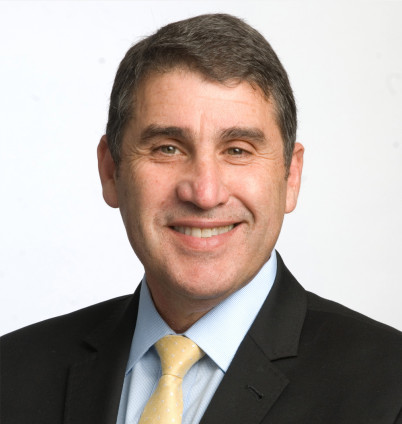
Professor Lester Levy, CNZM, MBBCH, MBA, FNZIM, has chaired the HRC since 2015. He was recently appointed as the Commissioner of Health New Zealand and is also Professor of Digital Health Leadership at Auckland University of Technology’s Faculty of Health.
Lester is a graduate of Medicine, holds an MBA, and has extensive management and governance experience in both the public and private sectors. He was previously chairman of the Auckland, Waitemata and Counties Manukau District Health Boards as well as Auckland Transport and chief executive of the New Zealand Blood Service and the Mercy Ascot group of hospitals (of which he was a founder). Lester is best known for leading a number of organisational performance transformations as a chief executive, entrepreneur and chairman, in both the public and private sectors.
Previously seconded to the Department of the Prime Minister and Cabinet as an advisor, Lester has been awarded the prestigious King's Fund International Fellowship from the King's Fund in London as well as being made a Fellow of the New Zealand Institute of Management. He was also appointed a Companion of the New Zealand Order of Merit (CNZM) in the 2013 New Year's Honours List for services to health and education.
Professor Jeroen Douwes

Jeroen Douwes is a professor of Public Health and director of Massey University’s Centre for Hauora and Health in Wellington. He obtained both his MSc and PhD in environmental epidemiology from Wageningen University, the Netherlands. He leads a comprehensive programme of public health research with a focus on respiratory disease and environmental and occupational health. He is also the principal investigator of the Infectious Disease Research Centre at Massey University. Before joining Massey University in 2002, he was a Postdoctoral Research Fellow at Otago University, Wellington, and Utrecht University, the Netherlands. Jeroen is associate editor of the International Journal of Epidemiology and Community Health.
Professor Emma Wyeth
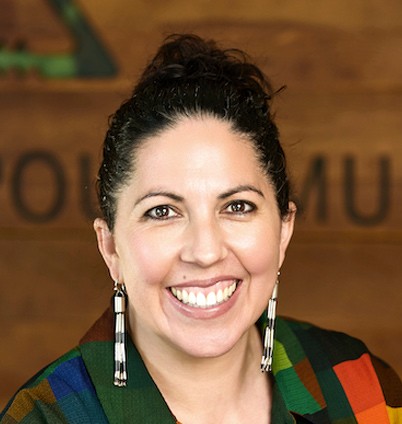
Emma Wyeth (Kāi Tahu, Te Ātiawa and Ngāti Mutunga; PhD, BSc(Hons)) is a Professor – Māori Health in the Ngāi Tahu Research Centre at the University of Canterbury. For over 15 years, the majority of Emma's research has focused on Māori injury outcomes and experiences. She leads or co-leads a number of contestable funded projects. More broadly, all of Emma’s work focuses on understanding and improving Māori engagement and experiences within the New Zealand health system and reducing inequities.
Emma holds a number of governance roles including Te Tauraki – the Iwi-Māori Partnership Board for the Ngāi Tahu takiwā, and WellSouth Primary Health Network. She is also heavily involved in her own Māori community and iwi, including as the deputy chair of Kāti Huirapa Rūnaka ki Puketeraki and as the Alternate Representative for Kāti Huirapa Rūnaka ki Puketeraki on Te Rūnanga o Ngāi Tahu.
Dr Lifeng Zhou
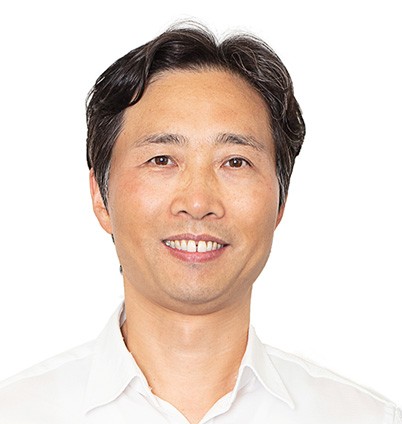
Dr Lifeng Zhou is the Chief Advisor for Asian/Ethnic Health and International Collaboration, Planning, Funding and Outcomes Unit (PFO), Health New Zealand Te Whatu Ora. In this role, he leads and develops health and well-being policy and provides data insights for Asian and ethnic communities across Health NZ. Lifeng also leads and implements the Asian international collaboration initiatives across the nation, focusing on areas such as digital transformation, leadership and talent, and facility and capacity building. Lifeng works part-time as a senior epidemiologist at PFO. Lifeng does research in health needs assessment, social and pharmaco-epidemiology, burden of disease, primary care service access by migrants, and health equity. He is a member of Auckland Health Research Ethics Committee (AHREC).
Mr Baden Vertongen

Baden Vertongen (Ngāti Raukawa ki Te Tonga) is a lawyer and mediator who has worked in sole practice since 2013, and before that worked at large national law firms. His work has included assisting with several Treaty of Waitangi settlement negotiations, Crown/Māori partnerships, the operation of post settlement governance entities, and providing advice to large Māori organisations. He also assists with resolving and mediating disputes across a range of issues. Baden is a former Tumuaki Tāne of Te Hunga Rōia Māori o Aotearoa (the Māori Law Society) and holds, or has held, a range of other governance roles.
Dr Frances Hughes

Dr Frances Hughes is a practicing registered nurse with over 35 years' nursing and international health experience. She is a recognised leader in her field and has a BA, MA and Doctorate in nursing. She is also a Harkness fellow and senior Fullbright scholar, a Senior Research Fellow at the Center for Health Outcomes and Policy Research at the University of Pennsylvania (USA), and Adjunct Professor at Queensland University of Technology (Australia). Frances’ specialty areas include mental health; aged care; healthcare systems; health workforce; psycho-social emergency response post/disaster management; and public policy. She has held executive management and nursing positions on a global level and was made an Officer and Companion of the New Zealand Order of Merit in 2006 and 2019 for her services to nursing, mental health and health.
Professor James MacLaurin
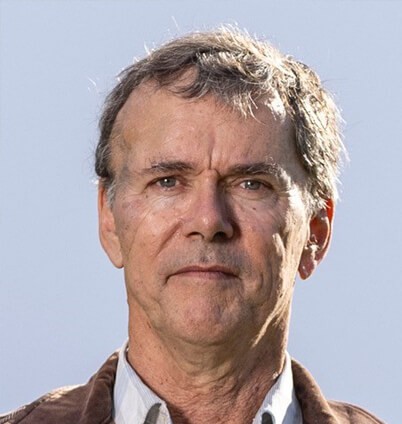
James is an Emeritus Professor of Philosophy at Ōtākou Whakaihu Waka | the University of Otago. He obtained his PhD in Philosophy of Science from the Research School of Social Science at Australian National University. His research spans the use of artificial intelligence and associated ethics and policymaking, including bias, transparency, and the control of artificial intelligence. James is the Director of Otago’s Centre for Artificial Intelligence and Public Policy. He has worked extensively on the impact of AI on jobs and work in Aotearoa, as well as government use of AI. He has recently developed (with Karaitiana Taiuru) an ethical framework for the use of AI in healthcare in New Zealand, published by the Office of the Prime Minister’s Chief Science advisor in "Capturing the benefits of AI in healthcare for Aotearoa New Zealand". He is co-author of "A citizen’s guide to artificial intelligence" with MIT Press.
Associate Professor Riz Firestone
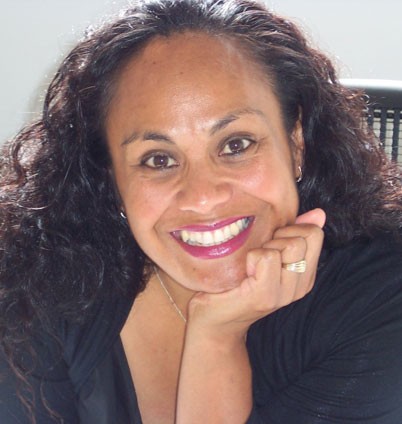
Tupa’ilevaililigi Ridvan Firestone (also known as Riz) is a Senior Research Officer at the Centre for Public Health Research, Massey University, Wellington. She obtained her bachelor’s degree in speech-language therapy at the University of Canterbury, and an MPH degree at the University of Otago before embarking on a PhD in sleep science at Massey University. She leads a Pacific Public Health Research Programme at the centre, which involves engaging Pacific youth and rangatahi Māori in youth empowerment programmes designed to build capacity and capability to lead projects in the community. Riz has worked extensively in community-based participatory action research with Pacific communities, and in the co-design of projects that focus on community-centred and community-led prevention programmes of non-communicable diseases, particularly pre-diabetes risk and type 2 diabetes.
Professor Cameron Grant
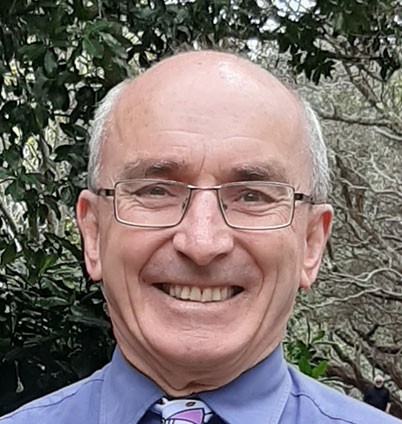
Cameron is a general paediatrician at Starship Children’s Hospital and Professor and Departmental Head, Paediatrics: Child & Youth Health at the University of Auckland. He is a graduate of the University of Otago (MBChB) and the University of Auckland (PhD). Cameron has worked as an academic general paediatrician in New Zealand since 1993 after postgraduate training at Duke University Medical Center and the Johns Hopkins Hospital and Johns Hopkins University.
His research focuses on prevalent child health problems, which cause disparities between population subgroups in New Zealand, and for which the potential exists to eliminate these disparities through immunisation or nutritional interventions.
Cameron’s teaching skills have been recognised with faculty and university teaching awards including a University of Auckland Teaching Excellence Award for sustained excellence in teaching.
Professor Brett Cowan
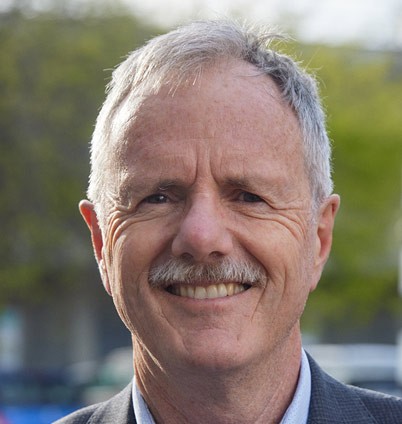
Brett Cowan is Professor and Tumuaki | Dean of the Faculty of Health and Environmental Sciences at the Auckland University of Technology (AUT), overseeing New Zealand's largest trainer of health professionals. He is qualified as a mechanical engineer and emergency medicine doctor and holds an MBA from the University of Auckland.
Brett’s experience includes a leadership role in New Zealand's scientific response to COVID-19 as Chief Scientist at the Crown Research Institute ‘Environmental Science and Research (ESR)’. His career encompasses academic, research, and leadership roles at the University of Auckland where he established the Centre for Advanced MRI (CAMRI) and performed internationally recognised research in artificial intelligence and clinical trials, including the successful commercialisation of intellectual property. He also served as deputy chair of the University of Auckland ethics committee for five years.
Brett is a trusted leader in health sciences and research. He was recently appointed as the Chair of the Mātai Board of Trustees in Tairāwhiti Gisborne, and the New Zealand Synchrotron Group – both overseeing significant health research infrastructure. He has also been appointed as a member of the new independent board, Research Funding New Zealand, which will lead much of the national research funding across the science, innovation and technology system.